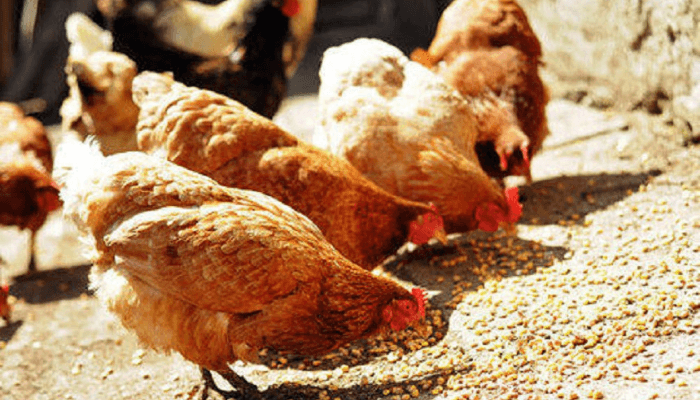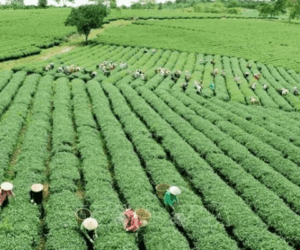Nigerians are increasingly opting for locally produced chicken as rising health consciousness and lower prices make imported alternatives less appealing, reducing the incentive for smuggling.
BusinessDay spoke to a dozen traders in major markets in Lagos, Nigeria’s commercial centre, who confirmed that patronage of locally produced chicken has surged, cutting Nigerians’ appetite for smuggled birds.
A Nigerian customs officer confirmed that the smuggling of frozen chicken into the country has declined, while local farmers said local poultry farms are expanding on the back of high demand.
“I sell more local frozen chicken than the imported ones because the demand is high. It is cheaper, healthier and Nigerians are consuming more of it,” Eberechi Okafor, a frozen food seller at Mile 12 market in Lagos, told BusinessDay.
Read also: Poultry farmers seek relief, call for zero import duty on production inputs
Yemisi Dada, a frozen food seller at Ketu, said she noticed the increase in the demand for Nigerian frozen chicken from her clients since 2018, when the border closure policy took effect.
“Since then, the demand for our frozen chicken has continued to increase and this is cutting Nigerians’ appetite for imports,” Dada noted.
More local output
Data from the Food and Agriculture Organisation (FAO) shows that Nigeria’s chicken meat production (fresh/frozen) surged from 274,767 tons in 2018 to 324, 135 tons in 2023.
Eustace Iyayi, registrar of the Nigerian Institute of Animal Science (NIAS), said post- border closure that the policy had created a market for locally-produced poultry products.
He said the million metric tons (MT) of chicken that were prevented from being smuggled into the county were being produced locally, creating an equivalent of 100,000 jobs.
Why local chicken?
Experts say the country will continue to record a yearly surge in its chicken production owing to growing hunger for protein, high demand and high investment returns on broiler production, among others.
Ayoola Oduntan, group managing director of Amo Farms Sieberer Hatchery Ltd – producers of NatnudO Chicken – said the country has increased its chicken production in recent years despite the high costs of feed.
Oduntan attributed the output rise to a combination of factors ranging from increased hunger for animal protein among Nigerians to government policy that triggered the momentum and a quick return on investments.
“Nigerians are eating more chicken,” he said. “The government is protecting local farmers, and businesses are chasing the quick returns that poultry promises.”
Prices of frozen chicken and life birds have also surged since the closure.
Chicken prices rising
BusinessDay survey on some markets in Lagos shows that a carton of Nigerian chicken now sells N50,000 as against N12,500 in 2020. This shows a 300 percent increase in price over the period. A kilo sells for N5,000.
Similarly, a cartoon of imported frozen, known as Orobo chicken, sold for N15,000 in 2019, now goes for N52,000, showing a 247 percent increase in price. A kilo sells for N5, 200, indicating that frozen chicken is N200 higher than locally grown chicken.
A carton of chicken wings and gizzards, which are mostly supplied by the local farmers, sells for N60, 000 and N75,000, while a kilo sells for N6,000 and N7,500, respectively.
Read also: Lagos taps subsidy to support poultry, fish industries from collapse
Remarkable resilience
Sunday Ezeobiora, president of the Poultry Association of Nigeria, said that the country’s chicken industry has continued to demonstrate remarkable resilience and growth potential despite the ongoing challenges.
“We have witnessed increased investment in modern production facilities, improved breeding stock, and enhanced biosecurity measures across our member farms,” Ezeobiora.
“Local producers are scaling up operations and adopting better management practices, resulting in improved productivity and quality standards,” he noted.
According to him, the industry is benefiting from growing consumer awareness about the nutritional and economic advantages of consuming locally-produced chicken.
He noted that the sector is seeing more partnerships between producers and retailers, strengthening the industry’s distribution networks and making local chicken more accessible for Nigerians.
Chi Farms, Zartech, natnudO Foods, Olam Agri and Sunchi Integrated Farms Ltd, among others, have increased investments and embarked on aggressive expansion to boost production in recent years.
The 2016 Agriculture Promotion Policy document released by the Federal Ministry of Agriculture put Nigeria’s annual chicken consumption at 200 million birds and supply at 140 million birds, indicating a gap of 60 million birds. The figure is expected to have increased owing to the nation’s high population growth rate.
Olusegun Sansi, an agricultural and livestock economist, said that chicken is the most consumed meat in the country owing to its health benefits.
“Nigerians are seeing the benefit of consuming our own chicken and this has brought about the boom in the industry and cut in import appetite,” he said.









